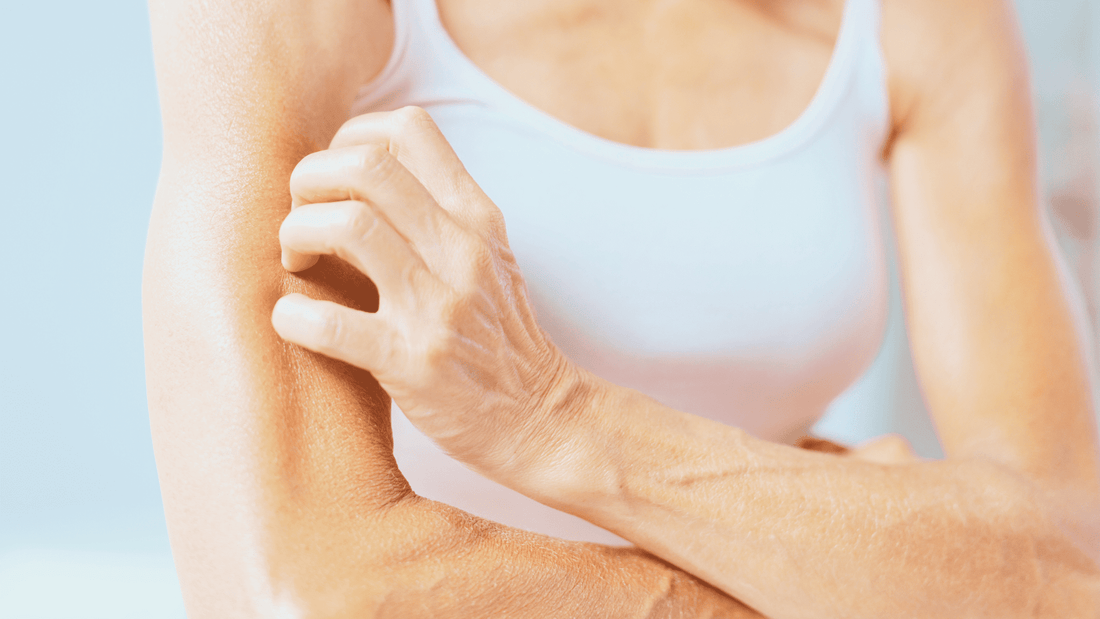
Eliminate Eczema: An exhaustive Guide
Share
- Avoid using topical steroid creams
Here are some potential problems associated with the misuse or overuse of topical steroid creams:
-
Skin Thinning (Atrophy): Prolonged use of potent topical steroids can lead to thinning of the skin. This can make the skin more fragile, leading to easy bruising and the development of visible blood vessels.
-
Topical Steroid Addiction/Withdrawal (Red Skin Syndrome): Some individuals may experience a rebound effect when discontinuing the use of potent topical steroids. This can result in a worsening of eczema symptoms, known as topical steroid addiction or Red Skin Syndrome. It's important to follow a healthcare professional's guidance for tapering off these medications.
-
Skin Discoloration (Hypopigmentation or Hyperpigmentation): Long-term use of topical steroids may lead to changes in skin pigmentation. This can manifest as lighter (hypopigmentation) or darker (hyperpigmentation) areas of skin.
-
Steroid Rosacea: Prolonged use of topical steroids on the face can sometimes lead to a condition resembling rosacea, characterized by redness, flushing, and visible blood vessels.
-
Perioral Dermatitis: This is a facial rash that can resemble acne and may be triggered or exacerbated by the inappropriate use of topical steroids on the face.
-
Tachyphylaxis: With prolonged use, the skin can become less responsive to the effects of the steroid, requiring higher doses for the same level of efficacy.
-
Systemic Absorption: While rare, excessive use of potent topical steroids over large areas of the body or for extended periods can lead to systemic absorption, potentially causing systemic side effects. (Information from ChatGPT)
- Simplify your skincare routine

- Avoid food that irritates your digestive system
-
Eat Proper Fats, Protein and Take Supplements

Mindful meditation can be a helpful tool in managing stress, and for individuals dealing with eczema, this practice may offer some relief. While mindful meditation may not directly treat the physical symptoms of eczema, it can positively impact the emotional and psychological aspects of stress, which can, in turn, influence the severity and frequency of eczema flare-ups. Here's how mindful meditation can help:
- Stress Reduction: Mindful meditation is known to reduce overall stress levels. Stress is a common trigger for eczema flare-ups, and by incorporating mindfulness into your routine, you may experience a decrease in stress and anxiety.
- Cortisol Regulation: Mindfulness practices have been associated with more balanced cortisol levels. Cortisol, often referred to as the stress hormone, can contribute to inflammation in the body, which may exacerbate eczema symptoms.
- Improved Sleep: Stress and eczema often create a cycle where one exacerbates the other. Mindful meditation has been shown to improve sleep quality, and better sleep can positively impact both stress levels and eczema symptoms.
- Enhanced Emotional Well-being: Mindfulness helps individuals become more aware of their thoughts and emotions without judgment. This increased self-awareness can lead to better emotional regulation, helping to manage the frustration, anxiety, or sadness that may accompany eczema.
- Focus on the Present Moment: Mindfulness encourages living in the present moment rather than dwelling on past experiences or worrying about the future. By focusing on the present, individuals may find it easier to manage stressors related to eczema.
- Mind-Body Connection: Mindfulness emphasizes the connection between the mind and body. By promoting a holistic approach to well-being, individuals may become more attuned to their bodies and better able to recognize and respond to triggers for eczema. (Information from ChatGPT)
